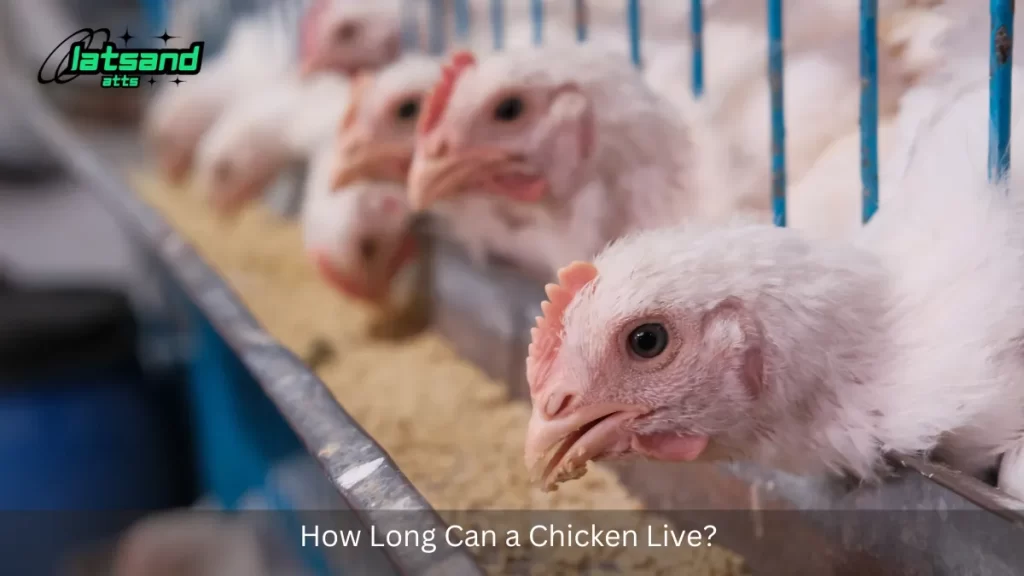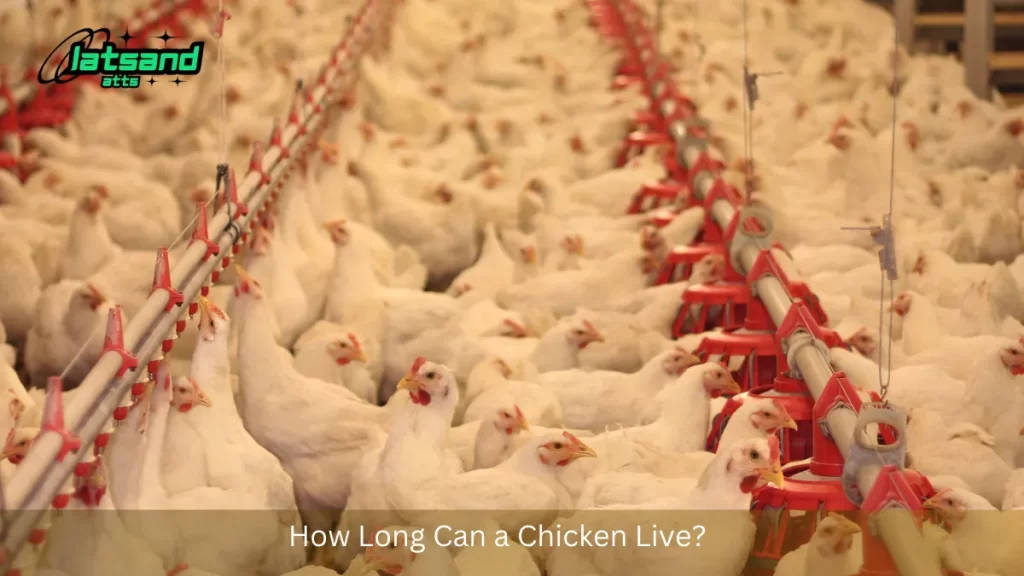Table of Contents
Have you ever wondered how long a chicken can live? Chickens aren’t just farm animals; they can be fun, curious, and loving pets. But, like any pet, people often wonder about their lifespan and how to care for them so they can live long happy lives. In this article, we’ll dive into the lifespan of chickens, what factors affect how long they live, and simple tips to help your feathered friends thrive for years. Curious about how long can a chicken live? We break down the average lifespan for you.
What is the Average Lifespan of a Chicken?

How long can a chicken live? It is a common question. The response may differ depending on several variables. Generally, most chickens live between 5 to 10 years. However, some can live even longer if they are well cared for and lucky enough to avoid health issues and predators. When people wonder how long can a chicken live, they often overlook important factors like breed. Certain breeds may also live longer than others, as some chickens are bred for hardiness and longevity.
Also Read: Mechanical Waves Require What to Travel? Discover the Hidden Truth
Factors That Influence How Long a Chicken Can Live
Breed of the Chicken
The breed of your chicken plays a massive role in how long it can live. For example, heritage breeds like the Rhode Island Red and Plymouth Rock are known to be more resilient and tend to live longer than chickens bred for high egg production, like the White Leghorn. Heritage breeds often live closer to 8-10 years, while high-production breeds may only live for 3-5 years.
Environment and Living Conditions
For their health, hens require a clean and safe environment. If a chicken lives in a place protected from predators, has plenty of space, and is kept clean, it is more likely to live longer. Proper housing with adequate ventilation, comfortable bedding, and regular cleaning can go a long way in extending a chicken’s life.
Nutrition
Chickens require a balanced diet to remain healthy, just like people do. Feeding chickens quality food with the right mix of proteins, vitamins, and minerals helps boost their immune system and keeps them strong. Adding fresh fruits and vegetables to their diet can also provide essential nutrients that promote a longer lifespan.
Health Care and Prevention
Preventing diseases is crucial for chicken longevity. Regular health checks, vaccinations, and treatments for parasites like mites and worms can prevent many common chicken illnesses. Keeping their coop clean and monitoring for signs of illness, like coughing or lethargy, can also help catch issues early.
Protection from Predators
Predators are one of the biggest threats to a chicken’s life. Foxes, raccoons, hawks, and even neighborhood dogs can attack chickens. Discover tips on extending your flock’s lifespan and how long can a chicken live with proper care. Ensuring your chickens have a secure coop and run area with sturdy fencing can help protect them and keep them safe. Many chickens that live longer are well-protected from these dangers.
Also Read: When You Steam Food Is a Chemical Reaction: Unlock the Secrets
Longest-Living Chickens: What’s the Record?

Believe it or not, the oldest recorded chicken was 16 years old! This hen, Matilda, holds the Guinness World Record for the longest-living chicken. Matilda lived a protected life as a pet, far from the typical farm hazards, contributing to her astonishing age. While it’s rare, chickens can live beyond the usual 5-10 years with exceptional care and a bit of luck. Curious about how long can a chicken live? With the right environment and diet, some chickens can live well beyond the average lifespan.
Common Health Issues that Affect Chicken Lifespan
Even with the best care, chickens face health issues that may shorten their lives. Here are some typical problems to be aware of:
- Respiratory Infections: Often caused by poor ventilation or damp conditions, respiratory issues can cause coughing, sneezing, and lethargy. A clean coop and adequate ventilation can lower the risk.
- Egg-Binding: This is when a hen can’t pass an egg, which can be life-threatening. Providing calcium supplements and fresh water helps, but a vet’s help may be needed in severe cases.
- Parasites: Lice, mites, and worms are common in chickens. Regular dusting, deworming, and cleaning can prevent infestations.
- Marek’s Disease: A viral infection that affects young chickens, Marek’s disease can be prevented through vaccination, which is recommended for chicks.
Fun Facts About Chicken Lifespan
- Chickens can live longer as pets than on farms because they’re often safer from predators and receive more personal care.
- Some chicken owners swear that spending time with their chickens and keeping them stress-free helps extend their lives. Happy chickens, after all, seem to thrive better!
- The oldest chickens often live where they have plenty of freedom, space, and protection from common threats.
Also Read: How Long Can a Chicken Live? Find Out the Astonishing Answer!
By providing a balanced diet, a safe and clean environment, regular health care, and protection from predators, you can give your chickens the best chance at a long, fulfilling life. Whether a chicken enthusiast or a first-time owner, these tips can help you enjoy your feathery friends for many happy years.

